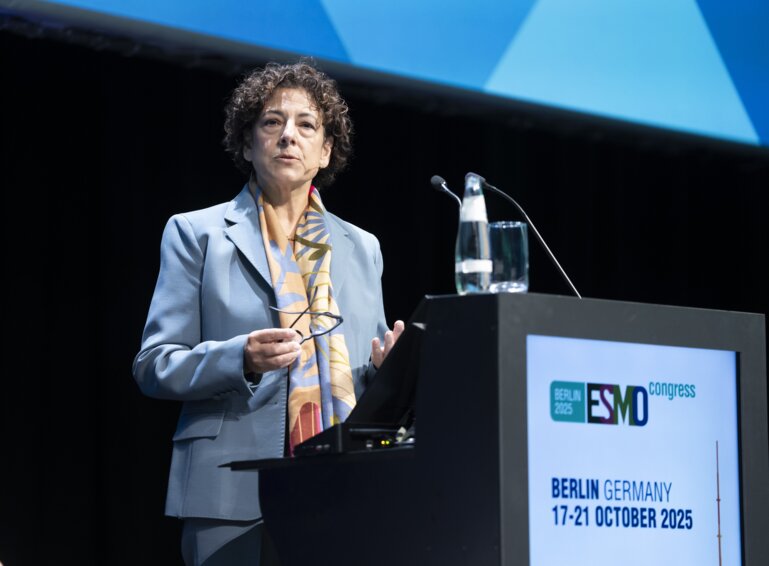The efficacy and overall good tolerability of cyclin-dependent kinase (CDK) 4/6 inhibitors have led to a change in the therapeutic algorithm of HR-positive/HER2-negative advanced breast cancer and established these compounds as the gold standard option for any patient with metastatic disease, except those with visceral crisis.
Several trials have documented the benefit of adding a cyclin-dependent kinase (CDK) 4/6 inhibitor (namely, palbociclib, ribociclib and abemaciclib) to endocrine treatment (ET) in the context of HR-positive/HER2-negative advanced breast cancer (ABC). Their efficacy and overall good tolerability have led to a change in the therapeutic algorithm and established these compounds as the gold standard option for any patient with metastatic disease, except those with visceral crisis.
In the first-line setting, all three CDK4/6 inhibitors in combination with aromatase inhibitors (AIs) have documented substantial and statistically significant progression-free survival (PFS) benefits, regardless of menopausal status and in all subgroups. Also, this combination has led to an overall survival (OS) benefit in premenopausal and perimenopausal women in the MONALEESA-7 trial (Lancet Oncol 2018;19:904-915). A cohort of the MONALEESA-3 trial has also evaluated – in the first-line setting – the combination of fulvestrant and ribociclib, with PFS and OS benefit (J Clin Oncol 2018;36:2465-2472). Accordingly, a combination of ET and CDK4/6 inhibitor has become the preferred first-line treatment for patients with HR-positive/HER2-negative ABC.
OS data from the majority of first-line studies evaluating CDK4/6 inhibitors in combination with AIs were eagerly awaited. Indeed, these trials reported the largest absolute PFS improvement, but it was unknown whether this substantial benefit translated into an OS improvement, considering the long post-progression OS expected in this population.
Now, at the ESMO Congress 2021, OS data from the MONALEESA-2 trial (LBA17_PR) were presented today. The combination of ribociclib plus letrozole showed a significant OS benefit versus placebo plus letrozole (median 63.9 months versus 51.4 months, respectively; hazard ratio 0.76; 95% confidence interval 0.63–0.93; p=0.004) and met the boundary of statistical significance. This is the first trial in HR-positive/HER2-negative ABC to demonstrate an impressive median OS exceeding 5 years. The estimated 6-year OS rate was 44.2% for ribociclib versus 32.0% for placebo.
As such, the MONALEESA-2 trial is the first to demonstrate a statistically significant and clinically meaningful OS benefit with the combination of a CDK4/6 inhibitor (i.e. ribociclib) plus an AI as first-line treatment in postmenopausal patients with endocrine-sensitive HR-positive/HER2-negative ABC (Ann Oncol 2018;29:1541-1547).
In this setting of patients, an alternative treatment option may be represented by the combination of fulvestrant plus ribociclib, which has a documented OS improvement in the MONALEESA-3 trial. However, given the compelling efficacy data observed in the MONALEESA-2 trial and considering the convenience of oral therapy with AIs compared with intramuscular injections of fulvestrant, which is also effective in the second-line setting, AIs should be considered the preferred endocrine partner to CDK4/6 inhibition for the vast majority of patients in this setting.
CDK4/6 inhibitors have led to a paradigm shift in the treatment of HR-positive/HER2-negative ABC, offering patients the opportunity to live significantly longer and better lives.






